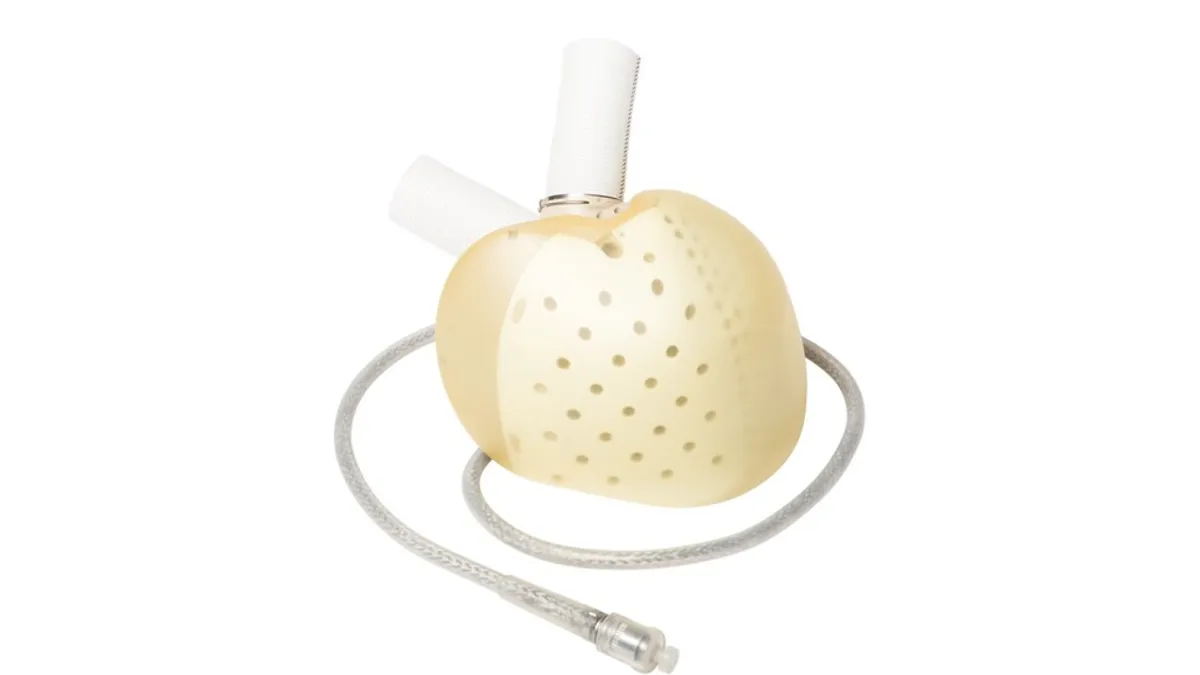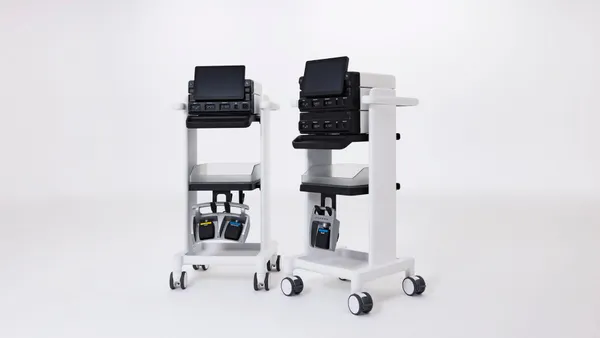Dive Brief:
- Carmat has warned investors that it has enough money to fund operations only through the end of next month, creating a pressing need to secure one of the various financing options it is pursuing.
- The company launched a total artificial heart in 2021 but suspended sales in response to quality issues. Sales resumed 11 months ago, but the ramp-up of production “was significantly disrupted by supply issues,” limiting Carmat’s revenues to 600,000 euros ($630,000) in the first half of the year.
- Carmat expects revenues of between 4 million euros and 6 million euros in the second half of the year but needs to secure financing to avoid running out of money before the end of 2023.
Dive Insight:
Carmat ended June with 23.8 million euros in cash, and with a net loss of 26.7 million euros over the first half of the year, expects to use up that money by the end of October. The situation is precarious but not unusual for Carmat, which warned in February that its cash would run out in July, as Carmat CEO Stéphane Piat explained on a Monday conference call with investors to talk about the first-half financial results.
“We've been working like this for the last two years, it's not unusual. Unfortunately, in France, it's pretty hard to get people around the table. You should expect news very soon,” Piat said. “Every time we prepare for a raise, we have a continuity plan as well.”
The pressures have been exacerbated by a delay to the anticipated increase in revenues. Carmat went into 2023 expecting to generate sales of 10 million euros to 13 million euros, but it has taken longer than expected to resolve supply chain issues. The supply problems meant Carmat supplied three Aeson artificial hearts over the first half of the year, resulting in revenues of 600,000 euros.
Carmat began to increase output in June and spent the summer hiring and ramping up production. As it stands, the company has 30 devices, which it sells for 205,000 euros, on the shelf and has just increased its output to more than 10 products a month. Operating at full speed, Carmat has capacity to make 250 devices a year, a figure it is working to double by the end of 2023, but it has issues to fix to hit that level.
“We stabilized the supply chain,” Piat said. “Clearly, there are still tiny, open issues. We have a better grasp on the supply chain, that’s no question. It's improving every day, and we are very confident [that], by the end of the year, we can ramp up in an easier way.”
To become a sustainable business, Carmat needs to drive down the cost of making its devices. Piat told investors no price increases are expected for the device, meaning a “drastic reduction of cost of goods sold” is Carmat’s path to breaking even. That will take time, and as such Carmat will need to raise money for “a couple of years,” CFO Pascale d’Arbonneau told investors.












